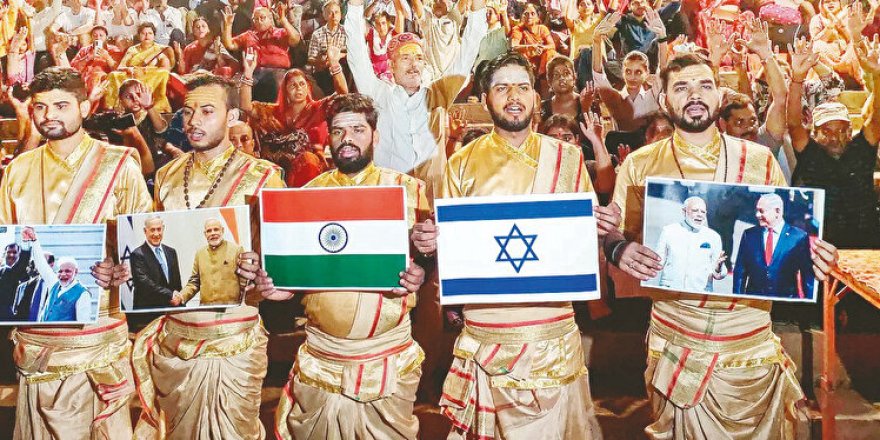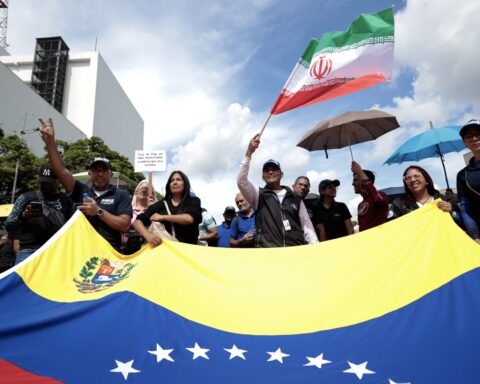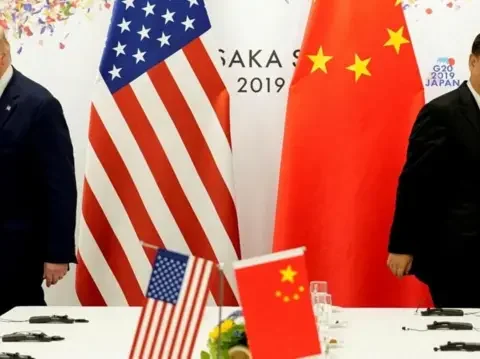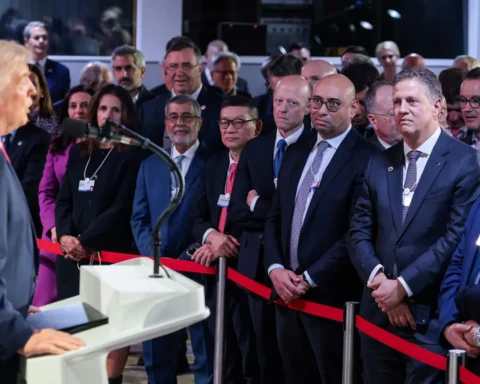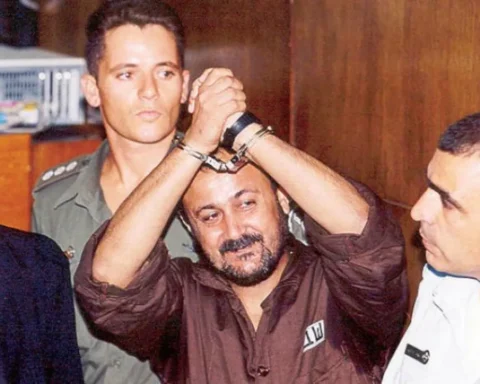The ideological marriage behind today’s India–Israel alliance.
In 1938, Mahatma Gandhi famously declared, “Palestine belongs to the Arabs in the same sense that England belongs to the English or France to the French.” His words reflected a broader current of Indian sympathy for Palestinian aspirations during the colonial era. Jawaharlal Nehru, who would become India’s first prime minister, likewise acknowledged the conflicts Jews had with gentiles across Europe but maintained that “fundamentally the problem of Palestine is a nationalist one. The Arabs are struggling against imperialist control and domination. It is a pity, therefore, that the Jews of Palestine instead of aligning themselves with this struggle have thought it fit to take the side of British imperialism and to seek its protection against the inhabitants of the country.”
These statements captured India’s early position with respect to Israel vis-à-vis Palestine. Before independence, India consistently endorsed Arab self-determination in Palestine. In 1947, India was one of only 13 nations to oppose the United Nations’ Partition Plan. Sir Abdur Rahman, the representative for India at the United Nations Special Committee on Palestine (UNSCOP), argued, “The people of Palestine have now admittedly reached a stage of development where their recognition as an independent nation can no longer be delayed. They are in no way less advanced than the people of the other free and independent Asiatic countries.” He warned that failure to grant independence would perpetuate violence.
India recognized Israel in 1950, yet its Cold War alignment with the Soviet Union and leadership role in the Non-Aligned Movement kept relations minimal. India consistently sided with Arab states, backing Egypt during the 1956 Suez Crisis and becoming the first non-Arab country to recognize the Palestine Liberation Organization in 1974. The following year, India authorized a PLO office in New Delhi, and in 1988 it officially recognized the State of Palestine.
This decades-long solidarity with Palestine only shifted after the Soviet collapse. In 1992, Prime Minister P.V. Narasimha Rao’s government established full diplomatic relations with Israel. His decision, influenced by RSS figure Bhaurao Deoras, represented a turning point. India continued to voice support for Palestine in international forums, but its practical ties with Israel rapidly expanded.
Hindutva: Ideological Roots of a New Alignment
The ideological convergence of Hindu nationalism and Zionism predates the foundation of Israel and India. The Rashtriya Swayamsevak Sangh (RSS), founded in 1925 by Keshav Baliram Hedgewar has always admired Israel as a model for ethno-religious nationhood. As a Hindu nationalist volunteer paramilitary organization, the RSS is the ideological parent of the Bharatiya Janata Party (BJP) and the center of the broader Sangh Parivar network.
Vinayak Damodar Savarkar, the father of Hindutva, expressed explicit admiration for Zionism. In the Essentials of Hindutva, he declared: “If the Zionists’ dreams are ever realised — if Palestine becomes a Jewish state — it will gladden us almost as much as our Jewish friends.” After Israel’s creation in 1948, he stated,”I am happy that most of the four countries have given the Jewish people the right to establish a Jewish state of their own in Palestine and have provided them with arms for that.”
Savarkar condemned India’s anti-Zionist position during the early days of the formation of the Jewish state. He lamented that “it is… to be regretted that the delegation which represented our Hindusthani Government in the UNO should have voted against the creation of the Jewish State,” and celebrated Israel as a force to “checkmate the aggressive tendencies of Moslem fanaticism in general.”
Madhav Sadashiv Golwalkar Golwalkar, RSS chief from 1940 to 1973, likewise praised Jewish nationalism. He described Palestine as “the natural territory of the Jewish people, essential to their aspiration for nationhood,” and admired the Jews for maintaining their “religion, culture and language.” As early as 1930, Golwalkar remarked, “The reconstruction of the Hebrew Nation in Palestine is just an affirmation of the fact that Country, Race, Religion, Culture, and Language must exist unavoidably together to form a full Nation idea.”
Deen Dayal Upadhyaya, co-founder of the Jan Sangh (the BJP’s predecessor), echoed this praise in Integral Humanism (1965): “Israeli Jews lived for centuries with other peoples scattered far and wide, yet they did not get annihilated in the societies in which they lived.” He emphasized Jewish resilience, concluding, “When a group of persons lives with a goal, an ideal, a mission, and looks upon a particular piece of land as motherland, this group constitutes a nation.”
From Ideology to State Policy
The rise of the BJP transformed these ideological sympathies into policy. Prime Minister Atal Bihari Vajpayee deepened ties, sending Home Minister L.K. Advani to Israel in 2000 and hosting Ariel Sharon in India in 2003.
The transformation from ideological sympathy to practical alliance found its embodiment in Lieutenant General Jack Farj Rafael Jacob, the highest-ranking Jewish officer to serve in the Indian Army throughout its history. Born to a Baghdadi Jewish family, Jacob’s most celebrated achievement came during the 1971 Bangladesh Liberation War, where he served as Chief of Staff of the Eastern Command. His strategic planning and execution were instrumental in one of the most decisive military victories in modern warfare.
Jacob’s prominence within India’s defense establishment made him a symbolic bridge between Indian and Israeli strategic thinking. In 1991, Jacob was approached by Professor Manohar Sondhi to join the BJP. After three months of consideration, he agreed to be a national security advisor. Jewish media outlets consistently celebrated Jacob with reverent descriptions. The Times of Israel called him “India’s Lion of Judah,” emphasizing his role as the preeminent Jewish leader in Indian military affairs.
With Narendra Modi—a lifelong RSS pracharak (Hindi: one who propagates)—the relationship reached unprecedented closeness. Modi referred to Benjamin Netanyahu as “my friend Bibi,” and in 2017 became the first Indian prime minister to visit Israel without stopping in Palestinian territories.
RSS chief Mohan Bhagwat praised Israel’s national strength, arguing it was “a small nation which stood tall due to its resolve.” He frequently cited Israel’s victories in six wars as a model for India to follow.
BJP strategists have also explicitly borrowed from Zionist political practice. In 2015, BJP General Secretary Ram Madhav compared India’s diaspora strategy to Jewish lobbying for Israel, “We are changing the contours of diplomacy and looking at new ways of strengthening Bharat’s interests abroad. They can be Bharat’s voice even while being loyal citizens in those countries. This is the long-term goal behind diaspora diplomacy. It is like the way the Jewish community looks out for Israel’s interests in the United States.”
Military Cooperation: From Clandestine to Comprehensive
Even before establishing full diplomatic relations, Israel quietly supplied India with military assistance. Israel provided weapons to India during the 1962 war with China, as well as in the 1965 and 1971 wars with Pakistan. In 1968, Prime Minister Indira Gandhi instructed RAW chief R.N. Kao to establish contact with Mossad.
The 1999 Kargil War cemented the alliance. Israel supplied laser-guided bombs, drones, electronic warfare systems, and satellite intelligence at a time when the United States and Europe had imposed sanctions over India’s nuclear tests. Former Israeli ambassador Daniel Carmon later remarked: “The Indians always remind us that Israel was there for them during the Kargil war… The Indians don’t forget this and might now be returning the favour.”
Since then, cooperation has expanded into multi-billion-dollar programs: the Barak missile systems, developed jointly with India’s DRDO; the Phalcon AWACS deal of 2004, worth $1.1 billion; purchases of UAVs, from early Searcher drones to advanced Heron systems; indigenous production of Hermes 900 drones; and joint development of the Barak-8 long-range surface-to-air missile.
India is now the largest buyer of Israeli arms, accounting for 46% of Israel’s weapons exports. Annual defense trade exceeds $1.5 billion, with Israel ranking as India’s second-largest supplier.
The Mumbai Attacks: A Watershed Moment
The 2008 Mumbai attacks (November 26-29, 2008) served as a watershed moment that significantly hardened anti-Islam sentiment and created an environment where India gravitated more toward Israel. The attacks were perpetrated by Lashkar-e-Taiba, a Pakistan-based militant group, with ten terrorists targeting multiple locations, including luxury hotels, the main railway station, and a Jewish cultural center.
The attacks specifically targeted multiple sites including the Nariman House Chabad Center. The Chabad House was deliberately selected, with investigators later revealing that Pakistan’s ISI intelligence agency was “especially pleased with the choice of the Jewish Chabad House as a target.”
The BJP seized the opportunity to leverage the threat of Islamist terrorism and government security failures for electoral advantage. More significantly, the Mumbai attacks catalyzed deeper intelligence and defense collaboration between India and Israel. Israeli officials have repeatedly drawn direct parallels between the Mumbai attacks and Israel’s own experiences with terrorism. Israeli Consul General Kobbi Shoshani stated in 2023: “There is a direct line linking the two attacks (the 26/11 and October 7 attacks),” emphasizing that “the bond between India and Israel is not only because we are brothers or because of our history, it’s because of our DNA to fight against terrorism.”
The Rise of Philosemitism and Chabad’s Political Integration
The Mumbai attacks also catalyzed a broader philosemitic movement within India, exemplified by the Modi government’s unprecedented personal engagement with Chabad-Lubavitch. Modi has maintained a deeply personal relationship with Moshe Holtzberg, the young survivor of the Chabad House attack. During his groundbreaking 2017 visit to Israel, Modi met with then-11-year-old Moshe, who expressed his desire to return to Mumbai: “I live in Afula, but I always remember my connection to Nariman House…I hope I will be able to visit Mumbai, and when I get older, live there. I will be the director of our Chabad House.”
Modi’s response demonstrated remarkable personal commitment: “Come and stay in India and Mumbai. You are most welcome. You and all your family members will get long-term visas. So you can come anytime and go anywhere.” Modi followed through by personally ensuring that 10-year multiple entry visas were issued to Moshe and his grandparents.
This relationship transcended typical diplomatic protocol. In December 2019, Modi sent a deeply personal message for Moshe’s Bar Mitzvah, calling his story “one of miracle and hope overcoming tragedy and immeasurable loss.” Modi emphasized that “the perpetrators of the cowardly terrorist attack in Mumbai clearly failed in their intent. They could not subdue our vibrant diversity. Nor could they dampen our spirit to march forward. Today, India and Israel stand together even more determined against terrorism and hatred.”
The BJP’s institutional support for Chabad reflects broader Hindu nationalist philosemitic attitudes. Many factions of world Jewry have recognized the Hindu nationalist movement’s receptiveness to Judaism. The influential American Jewish Committee explicitly praised the BJP’s stance, stating, “BJP has long been a friend to Israel and the Jewish people.” The organization noted it had “worked closely with India’s vibrant Jewish community, numbering about 4,500 – including 150 from Modi’s home state of Gujarat.”
Chabad’s political influence in India has been remarkable despite its recent establishment. Founded in Mumbai only in 2002, the organization has attracted high-level American political attention, including visits from Nancy Pelosi and congressional delegations in 2017. During Benjamin Netanyahu’s historic 2018 visit to India, the Chabad House became a centerpiece of diplomatic engagement, with the Israeli Prime Minister and Moshe unveiling plans for a memorial at the site where his parents were murdered.
Trade Beyond Arms
Economic relations have also surged. Bilateral trade expanded from $200 million in 1992 to a peak of $10.77 billion in 2022–23 before declining to $6.53 billion in 2023–24. India consistently enjoys a trade surplus.
Key sectors include diamonds (accounting for nearly half of trade, with Indian cutters in Surat and Israeli traders in Tel Aviv forming a global supply chain), defense equipment (weapons parts, electronics, and aerospace systems), high technology (semiconductors, cybersecurity, telecommunications), agricultural technology (drip irrigation, greenhouse systems, biotech research), and water management (desalination and wastewater recycling).
Commerce Minister Piyush Goyal has set a target of ten-fold growth, envisioning trade reaching $65 billion by 2037.
Hindutva’s Anti-Muslim Ethos
This partnership rests on more than mutual interests. Hindutva’s hostility toward Islam mirrors Zionism’s conflict with Palestinians. Both movements present themselves as civilizational projects of embattled peoples and justify exclusionary policies toward Muslim populations.
Hindu nationalist leaders often invoke parallels between Kashmir and Jerusalem. Vishnu Gupta once argued that “just like Jerusalem was overtaken by Muslims, holy places in India were also invaded by Muslims.”
Home Minister Amit Shah defended the 2002 Gujarat riots, stating that Muslims “were taught a lesson.” These declarations highlight how an anti-Islamic impulse has created fertile ground for India’s bond with Israel.
Surveillance, Strategy, and Zionist Influence
Cooperation has extended into controversial areas. The Pegasus spyware, developed by Israeli firm NSO, was deployed in India against journalists, activists, and political opponents. This revelation underscored how Israeli technology is now integrated into India’s security state.
Strategically, Israeli authorities have reassured India that they would never “support Pakistan on the Kashmir issue.” Such alignment emboldens the BJP’s hardline approach in Kashmir, while Israel benefits from a loyal Asian partner and lucrative defense contracts.
For much of the twentieth century, India stood with Palestine, casting dissenting votes at the United Nations and championing Arab self-determination. Yet the rise of Hindutva has shifted this stance. The RSS’s admiration for Zionism—articulated by Savarkar, Golwalkar, and Upadhyaya—has been translated into state policy under BJP rule.
The 2008 Mumbai attacks served as a crucial inflection point, deepening this convergence between Israel and India through shared experiences of terrorism and expanding security cooperation. As India and Israel deepen cooperation in defense, technology, and trade, the ideological roots of their alliance reveal a convergence that transcends mere pragmatism.
Hindutva has become the vector through which Zionist influence enters Indian policy, reshaping a country that once opposed Israel’s existence into one of its most dependable partners at a time when American hegemony is being challenged by the new multipolar order.
Source: https://josbcf.substack.com/p/hindutva-meets-zionism-the-ideological

